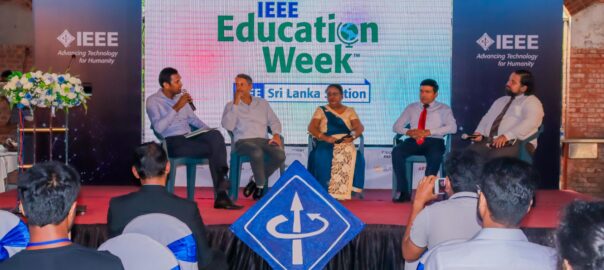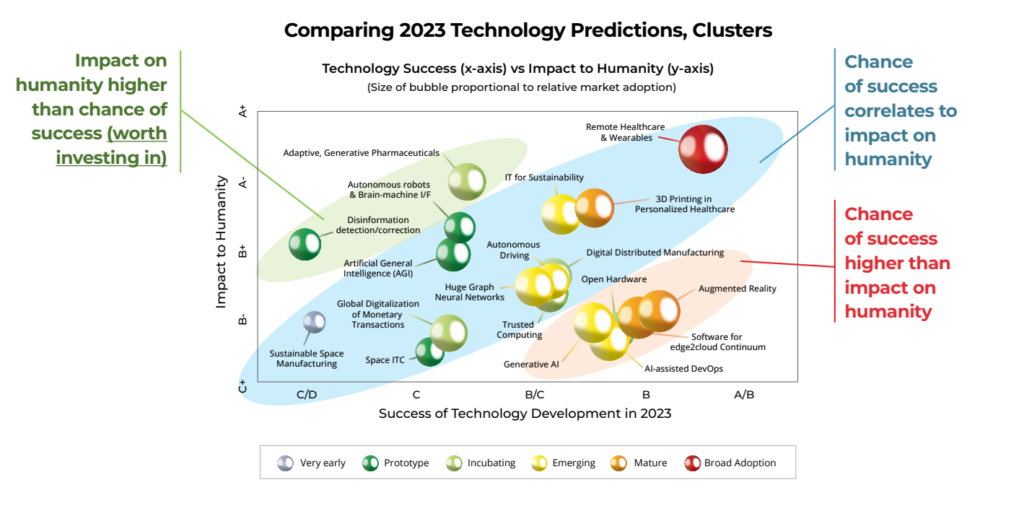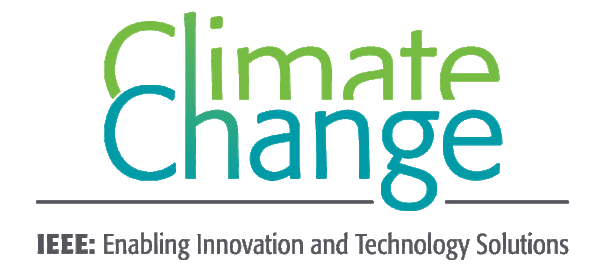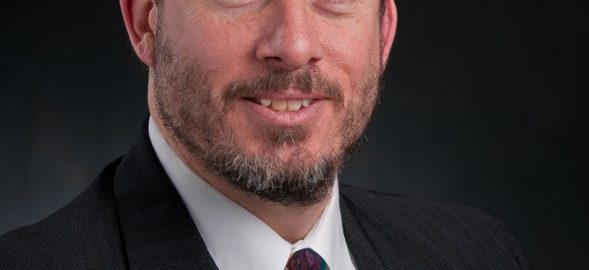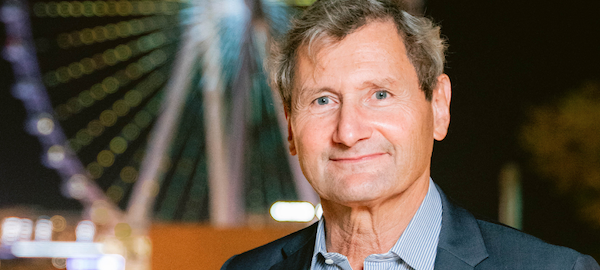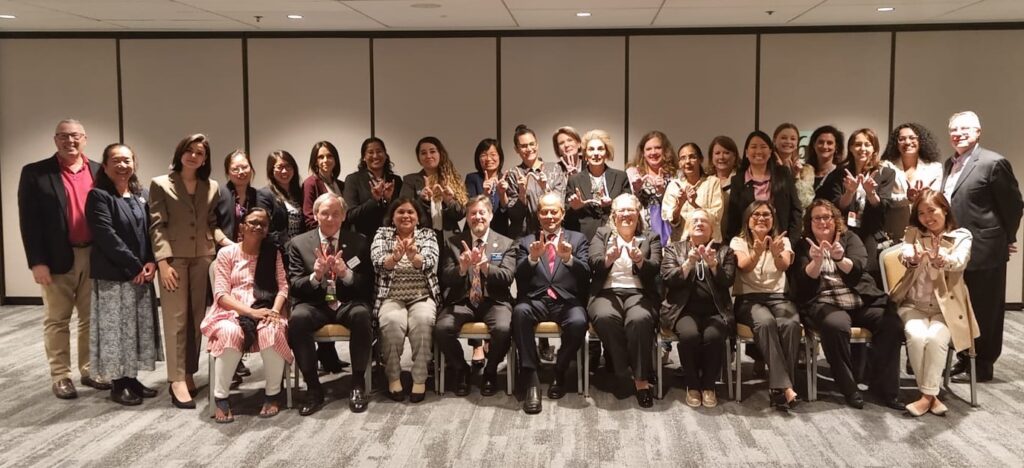
(WIE meeting in Atlanta at VIC)
Dear Colleagues,
The mid-point of the year is a good time to take stock of progress on our priorities. Our strategic priorities in 2023 include timely issues like engagement on climate change and sustainable technologies, imagining future products and services and new audiences, providing value to and growing existing audiences, and building on our progress of becoming a more diverse and inclusive community.
Progress on Climate Change Technologies
As we discussed in the previous Technical Activities (TA) Spotlight, climate change is an overarching effort across IEEE, and is clearly linked to the mission to advance technology for the benefit of humanity. We have made progress with the IEEE Ad Hoc Committee to Coordinate IEEE’s Response to Climate Change (CCIRCC) . The CCIRCC seeks to elevate the climate change technology related activities across IEEE, under an OU Outreach subcommittee led by Past VP of Technical Activities Bruno Meyer. Past VP-TA Roger Fujii leads a subcommittee looking at business models. Other subcommittees are looking at outreach and governance models.
The Technical Activities Climate Change Program
The Technical Activities Climate Change Program, led by Wei-Jen Lee, is looking at a number of aspects of climate change technologies. TA is looking at how best to implement recurring events and publications in climate change technologies, including moving from a TA Program to a more advanced Technical Community 2.0 that could include both IEEE members and non-members and could manage conferences and publications.
Progress on New Products and Services
Since we discussed AskIEEE last time, it has received funding to expand beyond the initial proof of concept. As you may recall, AskIEEE is an AI-driven technology encyclopedia app that provides answers to technology questions tailored to the profile of the user, including pre-college students, general public, college students, media and public policy makers, investors, practicing engineers and technologists, and researchers We hope to expand further with the assistance of Societies and Councils into their various areas of expertise.
Efforts continue to valorize the vast amounts of technology data produced and curated by IEEE, as well as the usage of data to understand emerging technology trends continues. Beneficiaries of such a product could include venture capitalists, Wall Street investors, chief technology officers, and many more. The goal is to improve the efficiency of the use of capital in advancing technology, clearly symmetric with the IEEE mission of advancing technology for the benefit of humanity. Incorporating fast-breaking technology insights delivered through more than 2,000 IEEE conferences is a real challenge, and will require the support of TA’s 47 Societies and Councils to achieve.
Progress in Inclusion and Diversity
TA continues to focus on inclusion and diversity. I had the chance to attend the Women in Engineering (WIE) Committee meeting in Atlanta in early May, and discussed the opportunities such as the TA Entrepreneurship mentorship program that aims to increase the participation of women in entrepreneurship. Indeed, I am wearing the purple IEEE WEI t-shirt as I write this. We look forward to recognizing the recipient of the 2023 TAB Award for S/C Impact in DEI to be confirmed at the June TAB meeting. The TAB Committee on Diversity and Inclusion (CDI) Award Subcommittee (chaired by Prof Elza Erkip) met to complete their evaluation of the eight nominations that were submitted this year. The Award will be presented at the November 2023 IEEE Technical Activities Board meeting in Washington, D.C. We would like to challenge Societies and Councils to work with the TAB CDI and the IEEE WEI to come up with ways to recognize achievements in diversity and inclusion in their events and activities.
Society and Council Strategic Planning
I have been privileged to attend the Administrative Committee (AdCom) meetings of several Societies and Councils, and in particular discuss the Technical Activities strategy to better support our community and beyond with the latest technology information delivered through events, publications, and other products and services, with more planned for the months ahead. For me, it is a great opportunity to learn more about the myriad fields of interest within TA while sharing strategic opportunities with our top leaders.
TA Tech Talk
We are looking forward to hosting John Deere technology and innovation expert Mark Moran at the Chicago OU series on Friday, June 16, night. Mark discusses the evolution of technology in agriculture in general and tractors specifically. Modern farm equipment combines sensors, data and compute with actuators and more to become a field laboratory and factory on one chassis.
Get Involved
Stay informed on climate change activities from IEEE by either joining the IEEE Climate Change Technical Community or signing up to receive the IEEE newsletter on Climate Change.


